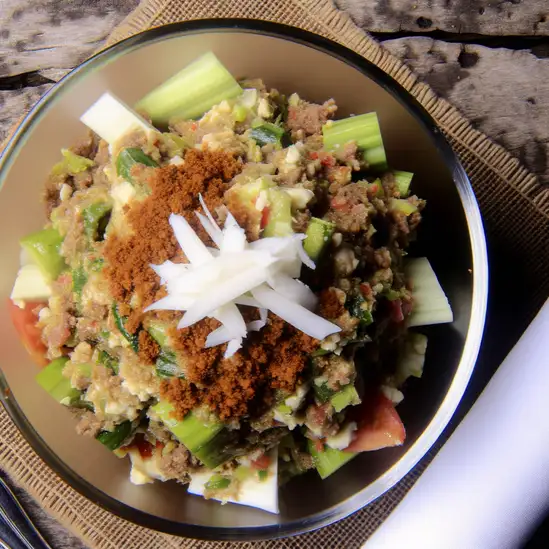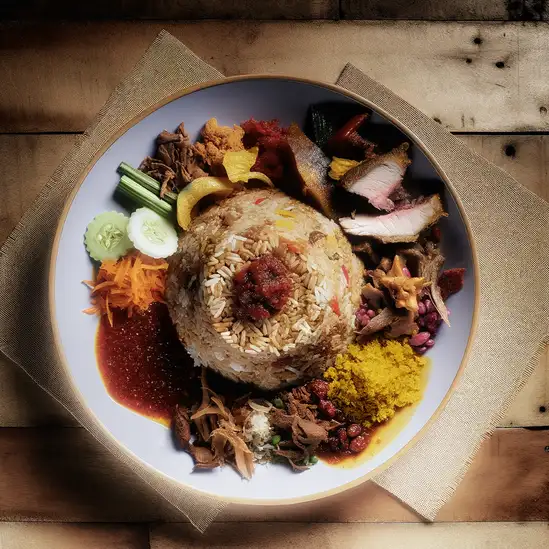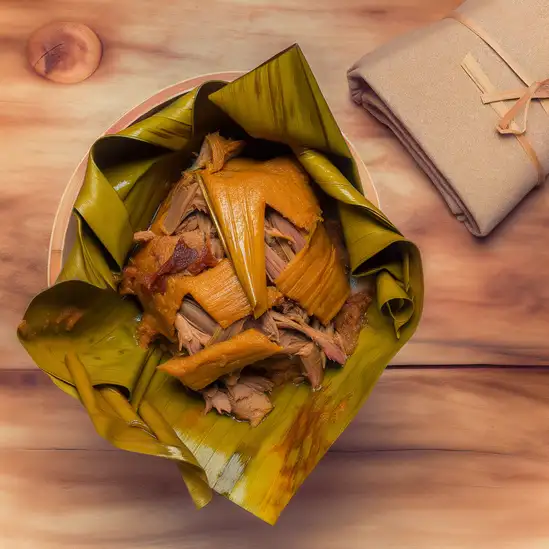


If you’re craving a breath of fresh air and a slower pace,Jatiluwih in Bali is like stepping into a living painting. The moment you arrive,you’re greeted by endless terraces of emerald rice paddies that ripple gently with the breeze,stretching as far as the eye can see. It’s not just the view—it’s the peaceful hum of nature,the distant chatter of farmers,and the earthy scent of wet soil after a morning rain that makes you feel instantly grounded. There’s a calmness here that’s rare,a quiet invitation to just be present. What makes Jatiluwih truly special is how it embodies the heart of Balinese culture. The rice terraces aren’t just beautiful—they’re a testament to the ancient Subak irrigation system,a community-driven way of life that’s been passed down for centuries. Walking along the narrow paths,you’ll see locals tending their fields with care,and if you’re lucky,you might catch a traditional ceremony or two,where offerings and prayers blend seamlessly with the landscape. Food here tastes like the land itself—fresh,vibrant,and simple. Imagine savoring a plate of nasi campur with herbs picked from nearby gardens,or sipping on a cup of Balinese coffee while watching the sun dip behind the hills. Jatiluwih isn’t about flashy attractions; it’s about soaking in the rhythms of rural life,feeling the warmth of the community,and letting the natural beauty seep into your soul. If you want a trip that feels like a gentle embrace from Bali’s true spirit,this is the place.
The information on this page is currently being reviewed by Tripkliq and should be used as a guide only
Eng word: Hello
Eng pronunciation: Om Swas-tee-as-too
Local language: Om Swastiastu
Eng word: Goodbye
Eng pronunciation: Om Shan-tee Shan-tee Shan-tee Om
Local language: Om Shanti Shanti Shanti Om
Eng word: Thank you
Eng pronunciation: Sook-smah
Local language: Suksma
Eng word: How much
Eng pronunciation: Nyak koo-deh
Local language: Nyak kude
Eng word: Toilet
Eng pronunciation: Kah-mar keh-cheel
Local language: Kamar kecil
Eng word: Help me
Eng pronunciation: Too-loong-een tee-ang
Local language: Tulungin tiang
Eng word: Yes
Eng pronunciation: Eeng-gee
Local language: Inggih
Eng word: No
Eng pronunciation: Too-sing
Local language: Tusing
Eng word: Excuse me
Eng pronunciation: Am-poo-rah
Local language: Ampura
Jatiluwih is part of the Cultural Landscape of Bali Province, which was designated as a UNESCO World Heritage Site in 2012. This recognition highlights the area's unique subak system, a traditional Balinese cooperative irrigation system.
The subak system in Jatiluwih dates back to the 9th century. It is a community-based method of water management that reflects the Balinese philosophy of Tri Hita Karana, which emphasizes harmony between humans, nature, and the spiritual realm.
The rice terraces of Jatiluwih are believed to be over 500 years old. These terraces are meticulously carved into the landscape, creating a stunning visual effect and demonstrating the ingenuity of Balinese agricultural practices.
Jatiluwih was once a favorite retreat for the royal family of Tabanan. The area's natural beauty and serene environment made it an ideal location for relaxation and reflection.
The villages around Jatiluwih have preserved their traditional Balinese culture and architecture. Visitors can explore these villages to experience authentic Balinese life, including traditional houses, temples, and community activities.
Located near Jatiluwih, Pura Luhur Batukaru is one of Bali's most important temples. It was built in the 11th century and is dedicated to the mountain gods. The temple is surrounded by lush forests and offers a peaceful retreat for worshippers and visitors alike.
Jatiluwih has embraced ecotourism, promoting sustainable tourism practices that protect the environment and benefit the local community. Visitors can participate in eco-friendly activities such as guided rice field tours, cycling, and trekking.
Jatiluwih hosts various cultural festivals throughout the year, celebrating Balinese traditions, arts, and agriculture. These festivals provide a unique opportunity for tourists to witness traditional dances, music, and rituals.
Many farmers in Jatiluwih practice organic farming, avoiding the use of chemical fertilizers and pesticides. This commitment to sustainable agriculture ensures the health of the land and the quality of the produce.
In Jatiluwih, the most common Power Adaptor is Type C, Type F.



A Balinese-style satay made from minced meat mixed with grated coconut and spices, wrapped around bamboo sticks and grilled to perfection.

A traditional Balinese salad made from finely chopped vegetables, coconut, and minced meat, often flavored with herbs and spices.

A mixed rice dish served with a variety of side dishes, including vegetables, meats, and sambal, showcasing the diverse flavors of Indonesian cuisine.

A salad of boiled vegetables, tofu, and hard-boiled eggs, served with a rich peanut sauce, offering a delightful mix of textures and flavors.

Slow-cooked duck marinated with a blend of spices and wrapped in banana leaves, resulting in tender meat infused with rich flavors.
If you ever find yourself craving a place where time slows down just enough to savor every moment,Ubud is that kind of sanctuary. Nestled in the lush heart of Bali,this town hums with a gentle rhythm—part spiritual retreat,part creative hub. Walking through its streets,you’ll catch the scent of frangipani and incense mingling with the earthy aroma of wet rice fields nearby. The air feels alive,filled with the soft chatter of locals,the distant clink of gamelan music,and the occasional call of a rooster greeting the dawn.
Ubud’s charm lies in its seamless blend of tradition and artistry. Temples with intricate stone carvings peek through vibrant greenery,while open-air markets burst with colorful textiles,hand-carved masks,and fresh tropical fruits. You can sip on a rich,earthy cup of Balinese coffee at a cozy café,watching artisans craft delicate silver jewelry or dancers rehearsing for an evening performance. It’s a place where culture isn’t just observed—it’s lived and breathed.
What really stays with you is the warmth of the people and the sense of connection to nature and spirit. Whether you’re wandering through the terraced rice paddies,joining a yoga class overlooking the jungle,or simply sitting by the Campuhan Ridge Trail at sunset,Ubud invites you to slow down,breathe deeply,and soak in a world that feels both ancient and vibrantly alive.
Denpasar has this vibrant,lived-in energy that instantly pulls you in. It’s not the polished tourist hub you might expect from Bali,but rather the bustling heart where locals go about their daily lives with warmth and rhythm. Walking through its streets,you’ll hear the hum of motorbikes weaving through traffic,the chatter of market vendors calling out fresh produce,and the occasional clang of temple bells weaving into the city’s soundtrack. The air carries a mix of fragrant spices,sizzling street food,and the earthy scent of incense from nearby shrines.
What I love most about Denpasar is how it feels like a genuine slice of Balinese culture. The city pulses with tradition—colorful ceremonies unfold in the temples,and you’ll spot locals dressed in sarongs,carrying offerings with quiet reverence. At the same time,there’s a youthful buzz in the cafes and art spaces,where creativity bubbles alongside age-old customs. It’s a place where you can savor a plate of spicy babi guling from a humble warung,then wander through the art markets filled with intricate wood carvings and vibrant paintings.
Denpasar invites you to slow down and soak in the everyday magic—the warmth of the people,the rich smells,and the lively streets. It’s a city that doesn’t shout for attention but rewards those who take the time to explore its layers. If you want to experience Bali beyond the beaches,Denpasar offers a genuine,colorful glimpse into the island’s soul.
Imagine stepping into a place where the sun kisses your skin,the ocean hums a steady rhythm,and the air carries the scent of salty waves mixed with sizzling street food. That’s Kuta for you—a lively beach town in Bali that pulses with energy but still feels effortlessly laid-back. From the moment you arrive,you’re wrapped in a warm,welcoming vibe that’s both vibrant and relaxed. The beach stretches wide,dotted with surfers catching waves and locals selling fresh coconut water,while the sunset paints the sky in fiery oranges and pinks.
Walking through Kuta’s streets,you’ll hear a blend of languages,laughter,and the occasional beat of gamelan music drifting from a nearby warung. The town’s character is a colorful mix of traditional Balinese culture and a buzzing international crowd,creating a unique atmosphere where ancient temples sit just blocks away from lively markets and buzzing nightlife. The aroma of satay grilling over open flames mingles with the tropical flowers blooming nearby,inviting you to slow down and savor every moment.
What makes Kuta truly special is how it balances excitement with ease. Whether you’re learning to surf,bargaining for handmade crafts,or simply lounging on the beach with a fresh mango smoothie in hand,there’s a genuine warmth in the air. It’s a place that invites you to dive into its rhythm,soak up its stories,and leave with a heart full of memories and a little more sun-kissed than when you arrived.
If you’re dreaming of a place where laid-back beach vibes meet vibrant energy,Seminyak is that sweet spot. Imagine waking up to the gentle hum of waves brushing against golden sands,the salty breeze mingling with the scent of frangipani and sizzling street food. It’s a place where mornings start slow with a fresh coconut in hand,and the day unfolds with a mix of chic boutiques,bustling markets,and cozy cafes spilling onto sun-dappled streets.
What really makes Seminyak special is its effortless blend of tradition and trend. You’ll find ancient Balinese temples tucked between sleek beach clubs,and local artisans selling handwoven textiles right next to stylish galleries. The town pulses with a creative spirit—whether it’s the vibrant street art,the soulful sounds of gamelan music drifting from a nearby ceremony,or the tantalizing aroma of spices from warungs cooking up authentic dishes.
As the sun dips low,Seminyak transforms. The sky blazes with fiery oranges and pinks,and the beach comes alive with laughter,clinking glasses,and the soft strum of guitars. Dinner might be fresh seafood grilled over coconut husks or a plate of spicy satay enjoyed under twinkling fairy lights. It’s a place that invites you to slow down,soak in the moment,and savor the rich tapestry of sights,sounds,and flavors that make this corner of Bali unforgettable.
If you’re craving a place where laid-back beach vibes meet a buzzing creative spirit,Canggu is where you want to be. Imagine waking up to the gentle crash of waves,the salty breeze mingling with the rich aroma of freshly brewed coffee from a nearby café. It’s a place where surfers paddle out at dawn,and yogis stretch under swaying palm trees,all while the sun paints the sky in soft pastels. The energy here feels both relaxed and alive,like the town itself is breathing in rhythm with the ocean.
Walking through Canggu’s streets,you’ll notice a vibrant mix of rustic warungs serving up spicy sambal and fresh seafood,alongside trendy spots dishing out smoothie bowls and artisan espresso. The soundscape is a blend of laughter,indie tunes spilling from open windows,and the occasional clink of glasses as friends toast to another perfect day. The rice paddies that frame the town add a lush,green contrast to the sandy shores,reminding you that this place is as much about nature as it is about culture.
What really makes Canggu special is its welcoming spirit. It’s a melting pot of locals,expats,and travelers who all seem to share a love for good vibes and genuine connection. Whether you’re exploring street art,hunting down the best taco stand,or simply watching the sunset from a beach bar,there’s a warmth here that makes you feel like you’ve found a second home. Trust me,once you’ve felt Canggu’s pulse,you’ll want to come back again and again.
Imagine stepping onto Gili Trawangan and instantly feeling the world slow down. This little island off the coast of Lombok pulses with a laid-back energy that’s both refreshing and contagious. No cars or motorbikes here—just the gentle clatter of horse-drawn carts and the rhythmic splash of waves against white sandy beaches. The air carries a salty tang mixed with the sweet aroma of tropical flowers and sizzling satay from beachside warungs. As the sun dips low,the sky bursts into shades of pink and orange,casting a warm glow over the turquoise waters.
What makes Gili Trawangan truly special is its blend of vibrant island life and serene natural beauty. Days drift by snorkeling alongside graceful sea turtles or cycling through palm-fringed paths,while evenings come alive with the laughter of travelers sharing fresh seafood dinners under starlit skies. The island’s community feels like a patchwork of friendly faces from all over the world,united by a love for simple pleasures and adventure.
There’s a rhythm here that invites you to slow down and savor every moment—the crunch of coral underfoot,the hum of reggae tunes from a beach bar,the cool splash of the ocean after a day in the sun. Gili Trawangan isn’t just a place to visit; it’s a place to feel alive,to connect,and to create stories you’ll want to tell again and again.
Unlicensed individuals may offer their services as guides, charging high fees but providing little to no useful information or value during the tour.
Some motorbike rental operators may falsely claim that the tourist caused damage to the vehicle and demand excessive compensation, even if the damage was pre-existing.
Some locals may pose as official ticket sellers and charge tourists inflated prices for entrance to the Jatiluwih Rice Terraces, even though the official ticket price is much lower.
Tourists may be asked to pay unofficial parking fees by individuals pretending to be parking attendants, even in areas where parking is supposed to be free.
Vendors near the rice terraces may inflate prices for souvenirs or local products, especially if they sense that the tourist is unfamiliar with the local currency or standard prices.
The use, possession, and trafficking of drugs are strictly prohibited in Jatiluwih, Indonesia. Indonesia has very strict drug laws, and violations can result in severe penalties, including long prison sentences and even the death penalty. Tourists should avoid any involvement with illegal drugs to stay within the law.
In Jatiluwih, Indonesia, smoking is generally allowed in designated areas. However, smoking is prohibited in public places such as restaurants, public transportation, and tourist attractions. It is important to look for 'No Smoking' signs and adhere to local regulations to avoid fines.
Vaping is subject to similar regulations as smoking in Jatiluwih. It is allowed in designated areas but prohibited in public places. Tourists should be mindful of local customs and regulations regarding vaping to ensure compliance.
What are other people saying about Jatiluwih?
Recent Social posts about Jatiluwih
There is nothing to show you for now.